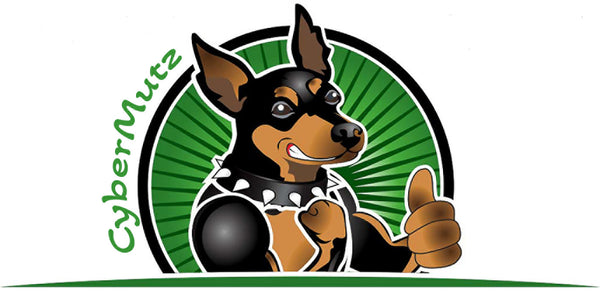
Pit Bull Dog
Share
Overview:
• Origin: The American Pit Bull Terrier was developed in the United States in the 19th century for various roles, including farm work, guarding, and as family companions. They have historical ties to bull-baiting and were bred for strength and tenacity. Over time, they have become popular as loyal pets and working dogs.
• Size: Pit Bulls typically weigh between 30 to 85 pounds, depending on the specific breed and individual dog. They usually stand about 17 to 21 inches tall at the shoulder.
• Lifespan: 12-16 years.
Appearance:
• Coat: Pit Bulls have short, smooth coats that come in various colors and patterns, including solid, brindle, and spotted. Their coat is low-maintenance and requires minimal grooming.
• Body: They have a muscular, stocky build with a broad chest and powerful legs. Their well-defined muscles contribute to their strength and agility.
• Head: Pit Bulls have a broad, strong head with a wide muzzle and pronounced jaw structure. Their ears can be cropped or left natural.
Personality and Temperament:
• Affectionate and Loyal: Pit Bulls are known for their loyalty and strong bond with their families. They are often affectionate and enjoy spending time with their owners.
• Intelligent and Eager to Please: They are intelligent dogs that respond well to training. Their eagerness to please makes them relatively easy to train, especially with positive reinforcement techniques.
• Playful and Energetic: Pit Bulls are playful and require regular exercise to stay healthy and happy. They enjoy engaging in activities like fetch, agility training, and interactive games.
• Social and Friendly: Despite their reputation, many Pit Bulls are friendly and social with people and other pets when properly socialized. They often enjoy interacting with children and can be gentle companions.
Health and Care:
• Exercise Needs: Pit Bulls require regular exercise to maintain their physical health and mental stimulation. Daily walks, playtime, and engaging activities are essential to prevent boredom and destructive behavior.
• Common Health Issues:
• Hip Dysplasia: A genetic condition that can lead to arthritis and mobility issues.
• Skin Issues: Some Pit Bulls may be prone to allergies or skin conditions, which require proper care and attention.
• Heart Disease: Certain breeds within the Pit Bull category may be prone to specific heart conditions, making regular vet check-ups important.
• Grooming: Their short coat is easy to maintain with regular brushing to remove loose hair. Routine dental care, ear cleaning, and nail trimming are also necessary.
Interesting Facts:
• Bully Breed: Pit Bulls are often classified as “bully breeds” and are recognized for their muscular build and strong appearance.
• Temperament Testing: Studies have shown that Pit Bulls often rank favorably in temperament tests, showcasing their potential as loving family pets when properly trained and socialized.
Temperament with Kids and Other Pets:
Pit Bulls are generally good with children and can be playful and protective. Supervision is important during interactions to ensure safe play. They can also get along with other pets if properly socialized from a young age, but introductions should be handled carefully to prevent any territorial behavior.
Training and Socialization:
Early training and socialization are crucial for Pit Bulls. Positive reinforcement methods work well, and exposing them to various environments, people, and pets helps them become well-rounded adults. Consistency and patience in training are key to fostering good behavior.
Exercise and Activities:
Pit Bulls thrive on physical activity and mental stimulation. Engaging in fetch, agility, obedience training, and interactive play can help meet their exercise needs and strengthen the bond between the dog and owner.
Summary:
CyberMutz.com (Dog-Themed Apparel & Accessories)
“CyberMutz.com – Explore a unique collection of dog-themed apparel, accessories, and gifts for pet lovers. Shop stylish, high-quality designs featuring your favorite dog breeds!” Category Page Descriptions: Dog Breed T-Shirts: “Show off your love for dogs with our exclusive breed-themed T-shirts. From German Shepherds to Chihuahuas, find high-quality, comfortable tees celebrating your favorite pup!” Dog Breed Pet Tank Tops: “Keep your furry friend stylish and comfortable with our dog breed-themed pet tank tops. Perfect for small and large dogs, these unique designs are a must-have!” Funny Dog-Themed Apparel: “Love dogs and humor? Our funny dog-themed apparel blends style with witty canine-inspired designs. Shop now for T-shirts, hoodies, and more!” Personalized Dog Merchandise: “Customize your dog lover’s gear with our personalized pet-themed apparel and accessories. Create a one-of-a-kind look for yourself or a perfect gift for a fellow dog enthusiast!”
CyberPussyKatz.com (Cat-Themed Apparel & Accessories)
“CyberPussyKatz.com – Celebrate your love for cats with our premium collection of feline-inspired apparel and accessories. Purr-fect designs for every cat lover!” Category Page Descriptions: Cat Breed T-Shirts: “Showcase your favorite feline friend with our stylish cat breed-themed T-shirts. From Maine Coons to Siamese, find the perfect tee for cat lovers!” Funny Cat-Themed Apparel: “Express your quirky side with our funny cat-themed T-shirts, hoodies, and more. Pawsome designs for those who love cats and humor!” Personalized Cat Merchandise: “Make it personal with custom cat-themed apparel and accessories. Create a unique gift or a special piece just for you!”
CyberMunkiez.com (Monkey-Themed Apparel & Accessories)
“CyberMunkiez.com – A fun collection of monkey-inspired apparel and accessories. Perfect for primate lovers who enjoy bold, playful, and unique designs!” Category Page Descriptions: Monkey-Themed T-Shirts: “Go bananas over our monkey-themed T-shirts! Whether you love capuchins, chimps, or gorillas, our designs bring out your wild side.” Funny Primate Apparel: “Add a touch of humor to your wardrobe with our hilarious monkey and ape-inspired apparel. Great for animal lovers and jungle enthusiasts!” Custom Monkey Merchandise: “Make it yours! Personalize your favorite monkey designs on T-shirts, hoodies, and more for a one-of-a-kind look.”
